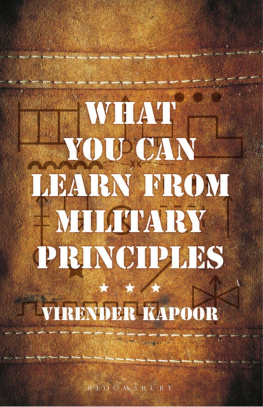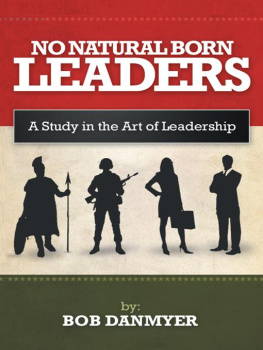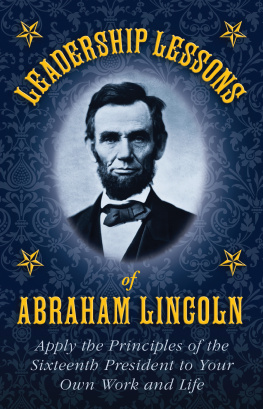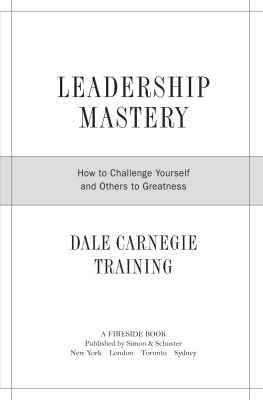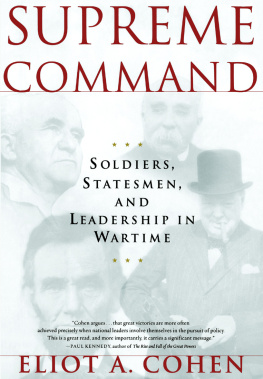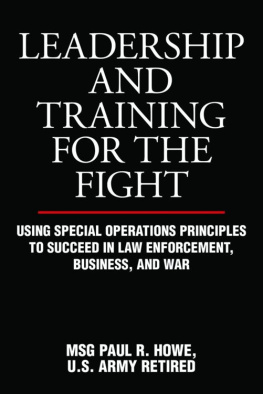Copyright, 1920
By E. P. DUTTON & COMPANY
All Rights Reserved
Printed in the United States of America
In appreciation of the splendid work of the civilians who qualified as military leaders during the war, I dedicate this book to the officers and non-commissioned officers of civil life. Charged with directing the work of others, they are responsible for both accomplishment and spirit, and their ability to inspire loyalty and cheerful service therefore means quite as much for the nation's welfare now as leadership ever meant in war.
FOREWORD
Some years ago, for the instruction of National Guard officers, I undertook the then unique task of analyzing the psychology of military training and leadership, and of putting into written form the principles of the art of handling men. The necessity for quickly training great numbers of inexperienced men as leaders in war proved my chapters on Leadership and Training to be both practical and helpful to thousands of civilians fitting themselves for positions of command. Many of these, business and professional men, have suggested that I rewrite these chapters, adapting my ideas and methods to use in civil life. We believe that the fundamental principles for handling men are universal in application, and that it will be of service to the community to put these principles into form for study by those whose responsibility it is to direct the work of others.
The term "leadership" in this restricted sense has been applied to the art of handling men. It has for its purpose the object of arousing and directing that latent force which exists in every man and doubles his accomplishment under the impulsion of loyalty, pride and interest when they are aroused by a skillful leader. Practical leadership is an art, not an exact science. No two leaders succeed in exactly the same way. One may not hope to acquire this art by learning specific rules to guide his conduct. A good leader of men is one whose impulses are right; and these impulses come from a genuine acceptance of principles, from one's own belief, feelings and experiences. It is a question therefore of personal understanding and sincerity of purpose to play the game fairly; of having a sympathetic understanding of the human animal and of what the laws of life make him do under certain circumstances; and finally of having an appreciation of one's own personality and how it affects others. It becomes a live, vital matter, to which one's own personal experiences bring the most valuable contributions. Its infinite variety of elements lends an unending interest to one's daily tasks, while success in dealing with its practical problems brings constant gratification, especially in seeing the development of stronger character and increased efficiency in one's subordinates.
The war has enriched our democracy in the awakened individuality of millions of citizens and in the hundreds of thousands of young men whom it has returned to civil life experienced in the responsibilities and possibilities of group leadership. Both these are to be potent influences in the future, and may be made a great national asset if properly directed. The measure of a nation, in peace as now in war, is found in the soul and purpose of all its people. The world has been taught that machines and the cold products of science cannot win in war. They test almost to breaking the endurance of man, but in the end superior manpower emerges the victor. It is the fiber of the bodies and nerves and souls of its manhood which meets the final test and proves the issue. Preparation for war, preparation to meet any test of our nation's claim to worthiness, demands that we give thought to the quality of that fiber. If we are to assure our nation's future success in any endeavor, we must guard her manpower now. To this end everyone who is charged with the control of others should appreciate his responsibility and his opportunity. He may easily so handle his men as not only to increase their efficiency in the work at hand, but so as to ensure that they leave their daily tasks in a frame of mind which will make them happier and better citizensstronger in character, higher in purpose, more loyal upholders of our democratic institutions. In that thought I have written this book, addressed to all who are responsible for the work of others.
I am indebted for particular ideas to an article in the Infantry Journal of April, 1918, by Professor William E. Hocking, of Harvard University; to a lecture by Admiral Sims, U. S. Navy, published in the same journal in February, 1918; to the series of lectures given by Bishop Brent at Harvard University and published under the title "Leadership"; and to "Industry and Humanity" by W. L. Mackenzie King.
Lincoln C. Andrews.
New York,
June 15, 1920.
CHAPTER I
Using Human Tools
"Aw, what do I care!" says the man who is working under a poor leader. "I'd do anything for him!" explains the happy man who has a good chief. A poor leader may even so antagonize his men that each will actually try to do the least that he can and still hold his job; while a good leader may take the same men through the same tasks and so handle them as to inspire a spirit which will make every man try to do his very best. Manpower is thus seen to be a direct function of leadership. And the difference between the results from good leadership and from poor is often astonishing. The wonder is that we have so long neglected this psychological factor for increasing accomplishment. It is probably because we thoughtlessly accepted the idea that leaders have to be "born," and did not stop to realize that this kind of leadership is in reality an art which may be readily acquired by anyone who has enough native character.
Recent experience has taught us that this art may be acquiredso we need no longer sit with folded hands in admiration of the "born leader." What is instinctive in him may be analyzed, reduced to principles, and made applicable to ourselves. It was done for the army, and by study many an inexperienced man made himself a successful leader of troops in the late war. It may be quite as easily done in any other field of activity.
A knowledge of this art is of practical value in every phase of human endeavorin bringing up children, in school, college and hospital, in the office and in the field, and most particularly in industry where men are grouped for the purposes of material production. Applied to any large business organization, let every leader from the big chief to the lowest sub-foreman practice the same principles of leadership, and there will soon permeate the whole machine a spirit of loyalty, teamwork and



